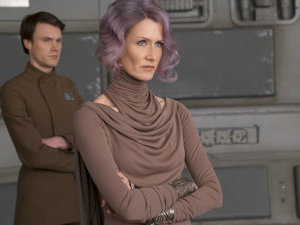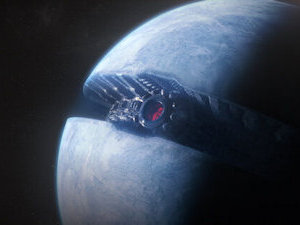How Expectations Hurt Star Wars: The Last Jedi (and Metroid: Fusion)
 | | This won't be controversial at all, I'm sure |
Without the comfort of brand recognition, every trip to the store would have an added element of gambling to it. Imagine trying to buy something as simple as bread without knowing where it came from or who made it. You'd have no frame of reference for what its shelf-life would be, how it would taste, or what kind of quality control was used in its creation. That's why brands--both big and small--are so powerful: they offer predictability.
Pop culture franchises, when they get big enough or old enough, are essentially the same: they turn into brands, and fans of those franchises tend to maintain strong expectations for new entries. If you're four or five seasons into a television show, for instance, you have a pretty good idea what kind of show you're watching, what style of stories are being told, the humor being utilized, the themes and ideas being explored, the quality of the acting and directing, etc. However, while every show is different, it's generally true that one can only last so long, because as it gets older, there's an increasingly difficult balance to maintain between matching fan expectations and showing them something new. That's because there's only so much deviation fans will allow, especially after years of having the things they appreciate reinforced, but without a certain amount of deviation, anything can become stale. As a long-time fan of Fox's 24, I know this all too well.
This can also partially explain the fan reactions to Star Wars: The Last Jedi, a film that continues to be the subject of much heated debate nearly half a year after its theatrical release. Don't worry: I'm not here to tell you your opinion of the movie is wrong. If anything, this article comes out of a genuine attempt to understand how two devoted fans of a franchise can walk away from the same movie with such polar opposite reactions. It's clear to me now that both sides have merit.
 | | Nobody expected a grumpy pink haired lady who stupidly withholds information to be in charge of the rebellion |
This is because The Last Jedi is a clear attempt to subvert the formula: it's not only in the subtext of the narrative, but it's pretty explicitly stated in the film itself. ("This is not going to go the way you think," the elder Luke bitterly spits at Rey.) Star Wars fans have come to expect a certain kind of story--at least from the movies--and though The Last Jedi hits a lot of familiar beats, it's marching in a deliberately different direction from those built-in expectations.
Instead of telling a story of heroes rising up to defeat evil, it's telling the story of people who rush in with the best intentions but wind up failing. Instead of giving us the long-awaited return of the youthful idealism and religious reverence of Luke Skywalker, we get an old hermit who has rejected his faith and made fairly significant mistakes in his life. Instead of giving us a universe where good triumphs no matter the odds, this movie offers one in which it can be wiser to flee a fight in order to ensure the survival of an ideal. Instead of demonstrating that one's importance comes from a predetermined destiny, we learn that a person from nowhere with nobodies for parents can make her own destiny.
Getting hung up on the details isn't what's important here. It doesn't matter if Skywalker's portrayal is consistent with the heroic young Jedi from three and a half decades ago. It doesn't matter how important it is to explain where Supreme Leader Snoke came from. I'll happily debate these points and more, if you like, in the comments below. What matters, though, is that a lot of fans went in expecting a certain kind of story but got something that subverted their expectations. For some of them, that subversion is too much, and I can understand how it might feel like an insult.
 | | Starkiller Base: TOTALLY not a Death Star |
However--and this is critical--if the movie had delivered exactly what they expected it to, it would have been accused of being boring and formulaic, maybe not by the same fans, but certainly by a significant portion of other fans who would be no less vocal in their disapproval. One need look no further back in time than the previous Star Wars movie, The Force Awakens, to see an example of this.
There is a middle ground, to be sure, between giving fans what they expect and offering them something different enough to justify a new story. Unfortunately, as the franchise passes its fortieth anniversary, that middle ground is shrinking almost to nonexistence. The Force Awakens and The Last Jedi are good markers for the edges of the middle ground, and for some fans, one or both of them go too far in their respective directions.
This doesn't just happen to television or film series, either. Take Metroid: Fusion, for example. Until Metroid: Other M released in 2010, Fusion was the most divisive entry in one of Nintendo's flagship video game franchises, released simultaneously alongside what would become its most financially successful entry: Metroid Prime. Ironically, on the day these two games were released, Fusion was seen as the safer entry--the one created by Nintendo that would give fans the Metroid experience they expected--while Prime was seen as the more risky endeavor, being a first-person shooter designed by an untested third party developer.
 | | Turns out Samus isn't into confinement |
As with The Last Jedi, Metroid: Fusion is controversial because it makes a calculated, intentional choice to subvert expectations. Previous Metroid games had always emphasized the freedom to explore and backtrack, but in Fusion, you are forced into a linear path, with previous and future locations arbitrarily locked out for nearly the entire game. The story of Fusion can help explain why the game does this: the protagonist, Samus Aran, is dealing with the loss of her agency, her identity, and her autonomy. Samus is being overwhelmed by a lack of choice from multiple directions, and the gameplay is purposefully frustrating as a way to reinforce this narrative. Heck, it climaxes with Samus being locked in a single room with no hope of escape. Then there's the central villain, a clone of Samus in her prime that can literally blast through locked doors with ease and do whatever she wants, whenever she wants.
Regardless of the wisdom (or lack thereof) in basing an interactive experience on the idea of lost agency, it's clear that Metroid: Fusion is trying to tell a very specific kind of story, but one that goes in the opposite direction of the series' momentum. (I could make a virtually identical argument about Final Fantasy XIII, another shockingly linear game in a franchise known for its open worlds that happens to be about the frustrations of lacking free will, but that would be beating a dead horse at this point.) For this reason, Fusion has its very vocal detractors, just like The Last Jedi.
And to be crystal clear: fans are not wrong to feel this way. It all goes back to the idea of brand recognition. If you buy a can of Coke, you'd be justified in complaining if you popped the top and discovered the soda was inexplicably green. Some people might think a surprise green Coke is fun--they might even prefer it for whatever reasons--but brands exist because they remove uncertainty. You tamper with the familiar formula, and you could potentially hurt the brand. Coke's a good example, because the Coca-Cola Company learned this lesson quite famously when it decided to unveil a new Coke recipe (what would eventually be called "New Coke" or "Coke II") while simultaneously ceasing production of the original. If you're too young to remember that, let's just say it didn't go over too well, and Coke went back to normal almost immediately, with New Coke relegated to a curious footnote in the historical annals of soft drink manufacturing. I'll tell you a salacious secret, though: I kinda liked New Coke.
-e. magill 4/12/2018
| MORE LIKE THIS: |

|
18 Things I Learned in 2018
The Geek discusses developments in his personal life, politics, and popular culture from the last twelve months. [1/3/2019]
|

|
The Movies of 2017, Part 2
The Geek reviews several movies from the second half of 2017, including Spider-Man: Homecoming, It, Justice League, and Star Wars: The Last Jedi. [12/21/2017]
|

|
Notes from Darth Plagueis
The Geek has read the Star Wars Legends novel by James Luceno and weighs in on its implications for the future of Star Wars. [4/20/2016]
|
|
|
|
|